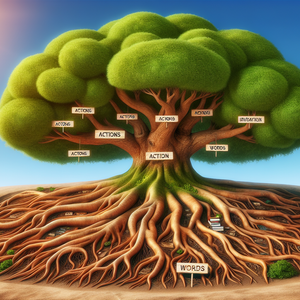The Intersection of Technology and Development in Boston

Smart building technologies are fundamentally transforming the way spaces are designed and utilized. These innovations encompass a wide range of features, from energy-efficient systems to automated lighting and climate control. Companies like Tishman Speyer, which developed the iconic Seaport Square project, are leading the charge in this movement. By integrating Internet of Things (IoT) devices, Tishman Speyer can monitor and optimize energy consumption, significantly reducing the carbon footprint of their buildings. For example, Tishman Speyer’s properties leverage advanced sensors to dynamically adjust heating, cooling, and lighting based on real-time occupancy data. This not only enhances the comfort of residents and tenants but also leads to substantial cost savings on energy bills. Such innovations make the proposition appealing to both developers and occupants, creating a win-win situation that promotes sustainability while improving quality of life.
Data Analytics: Making Informed Decisions
Data analytics has become an indispensable tool in modern development projects. By harnessing big data, developers can glean insights into market trends, user preferences, and environmental impacts. Gerding Edlen, a company known for its data-driven approach to real estate development, exemplifies this trend. Their project, The Benjamin, was meticulously crafted using extensive market research to align the building's amenities with the desires of prospective tenants, including shared workspaces and wellness facilities. Furthermore, data analytics informs site selection processes, ensuring that development projects are positioned for success in terms of accessibility and community needs. This strategic methodology mitigates risks associated with investment and enhances the sustainability of projects. By understanding market dynamics, developers can make informed decisions that not only cater to current demands but also anticipate future trends.
Artificial Intelligence: Enhancing Urban Living
Artificial intelligence is serving as a transformative force in urban development. AI applications streamline project management, improve design efficiency, and enhance user experience. For instance, Boston Properties, a leading real estate investment trust, has integrated AI technologies into their building management systems. These systems are capable of predicting maintenance needs, allowing for proactive measures to address issues before they escalate into costly repairs. AI also plays a crucial role in enhancing security measures in urban developments. Facial recognition technology and predictive analytics can create safer environments for residents and visitors alike. This not only improves the quality of life but also increases the appeal of urban properties, making them more attractive to potential tenants and buyers.
Creating Sustainable and Resilient Urban Spaces
The integration of technology in development aligns with the increasing demand for sustainability. As cities contend with climate change and its associated challenges, tech-enabled solutions provide pathways to create resilient urban environments. Companies like Dodge Construction Network are at the forefront of pioneering sustainable practices that blend technology with environmental stewardship. Their projects often include green roofs, rainwater harvesting systems, and solar panels, all designed to minimize environmental impact while utilizing data-driven insights to optimize efficiency. Boston's commitment to sustainability is evident in its climate action plan, which advocates for the adoption of smart technologies to reduce greenhouse gas emissions. The collaboration between tech companies and developers in Boston is pivotal in achieving these environmental goals, ensuring that the city evolves while respecting ecological boundaries.
The intersection of technology and development in Boston represents not merely a trend but a fundamental transformation in how urban spaces are conceived and constructed. As companies like Tishman Speyer, Gerding Edlen, and Boston Properties lead the way, we glimpse a future where smart technologies, data analytics, and AI converge to create more efficient, sustainable, and livable environments. This integration enhances the quality of urban life and positions Boston as a leader in innovative real estate development. As we move forward, the collaboration between technology and development will be essential in addressing the challenges of urbanization, ensuring a vibrant and resilient future for the city. Through this ongoing dialogue between tradition and innovation, Boston is poised to redefine urban living, creating spaces that not only meet the needs of today but also anticipate the demands of the future.
Smart Building Technology Specialist
Tishman Speyer, Boston Properties, Siemens
Core Responsibilities
Design and implement smart building systems, including IoT devices for energy management and automation.
Collaborate with architects and engineers to integrate technology seamlessly into building designs.
Provide training and support for building management staff on new technologies.
Required Skills
Proficiency in building automation systems and IoT platforms (e.g., KNX, BACnet).
Strong understanding of energy management principles and sustainable building practices.
Familiarity with programming languages and data analysis tools.
Data Analyst - Real Estate Development
Gerding Edlen, CBRE, JLL
Core Responsibilities
Analyze market trends and user data to inform development strategies and site selection.
Create data visualizations and reports to communicate findings to stakeholders.
Collaborate with project teams to ensure alignment with market demands and tenant preferences.
Required Skills
Advanced skills in data analysis tools (e.g., SQL, Python, Tableau).
Experience in real estate market analysis and a strong understanding of demographic trends.
Excellent communication skills for presenting data-driven insights.
AI Solutions Architect - Urban Development
Boston Properties, IBM, Urban Land Institute
Core Responsibilities
Develop and implement AI-driven solutions for building management and urban planning.
Work closely with cross-functional teams to integrate AI technologies into existing infrastructure.
Monitor and optimize AI systems for predictive maintenance and user experience enhancement.
Required Skills
Strong background in machine learning, data analytics, and software development.
Experience with AI frameworks such as TensorFlow or PyTorch.
Knowledge of real estate operations and urban development challenges.
Sustainability Consultant - Real Estate
Dodge Construction Network, ARUP, EcoReal Solutions
Core Responsibilities
Advise on sustainable design practices and technologies for new development projects.
Conduct environmental impact assessments and develop sustainability reports.
Collaborate with stakeholders to ensure compliance with local and national sustainability standards.
Required Skills
In-depth knowledge of green building certifications (e.g., LEED, BREEAM).
Strong analytical and problem-solving skills related to environmental challenges.
Ability to communicate complex sustainability concepts to diverse audiences.
Urban Planner - Technology Integration
City of Boston Planning & Development Agency, AECOM, local development firms
Core Responsibilities
Develop urban plans that incorporate technological advancements for community improvement.
Engage with public stakeholders and government entities to advocate for tech-integrated solutions.
Assess the impact of technology on urban environments and recommend policy changes.
Required Skills
Proficient in urban planning software (e.g., GIS, AutoCAD).
Strong understanding of zoning laws, land use policies, and community development.
Excellent project management and stakeholder engagement skills.


